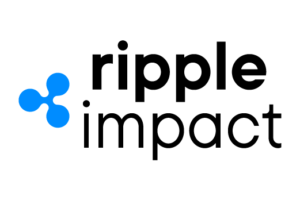The Promise and Future of New Financial Technology: For Better or for Worse?

Photo Credit: Benjamin Dada (Unsplash)
Breakthroughs in technologies such as blockchain, cryptocurrencies, mobile banking, investment apps, and digital credit are rapidly changing the global financial ecosystem and driving the creation of novel business models. The fintech revolution holds the promise of not only improving access and usage, but also of expanding the financial health and resilience of businesses and vulnerable populations; yet our understanding of many of its consequences has not kept pace with innovation.
On June 7th and 8th, the Lab for Inclusive Fintech (LIFT) and the Digital Credit Observatory (DCO) at the University of California, Berkeley, co-hosted an event bringing together researchers, implementing partners, and policymakers to explore whether and how digital financial technologies can benefit underserved populations around the world.
Agenda
Please see the Event Agenda here.
Day 1 (June 7)
Session 1: The Impact of Digital Credit in Developing Economies: A Review of Recent Evidence
Jon Robinson, Co-Scientific Director of the DCO & Professor of Economics, UC Santa Cruz
Recording, Slides, Paper
Session 2: Data Privacy and Applications for Responsible Innovation in Digital Financial Services
Joshua Blumenstock, CEGA Co-Director & Chancellor’s Associate Professor, UC Berkeley School of Information and Goldman School of Public Policy & Nitin Kohli, Postdoctoral Scholar, CEGA
Recording, Slides
Session 3: How Digital Financial Services Intersect with Consumer Protections and Women’s Economic Empowerment
Too Fast, Too Furious? Digital Credit Delivery Speed and Repayment Rates
Silvia Prina, Associate Professor of Economics, Northeastern University
Recording, Slides, Paper
Can Transparency Build Trust in Banks? Experimental Evidence from India
Simone Schaner, Assistant Professor of Economics, University of Southern California
Recording, Slides
Evidence of Digital Financial Services Impacting Women’s Economic Empowerment
Rachel Heath, Associate Professor of Economics, University of Washington
Recording, Slides, Paper
Day 2 (June 8)
Session 1: Keynote Address
Makhtar Diop, Managing Director, International Finance Corporation (IFC)
Recording
Session 2: Panel | Financial Technology and Key Priorities for Policy and Knowledge Agendas
Chair: Paul Gertler, Professor of Economics, Haas School of Business, UC Berkeley
– Arturo Franco, Senior Vice President, MasterCard Center for Inclusive Growth
– Bill Maloney, Chief Economist, Latin America and Caribbean Region, World Bank
– Eric Parrado, Chief Economist, Inter-American Development Bank
– Ken Weber, Head of Social Impact & Sustainability, Ripple
Session 3: Panel | Fintech, Blockchain, and a New Era of Emergency Aid and Cash Assistance
Chair: Ken Weber, Head of Social Impact & Sustainability, Ripple
– Dante Disparte, Chief Strategy Officer & Head of Global Policy, Circle
– Jorge Fernandes, Innovation Accelerator Strategic Advisor, World Food Program
– Elizabeth Li, Deputy Director, Binance Charity
– Scott Onder, Senior Managing Director, Mercy Corps Ventures
– Christian Pennotti, Sr Director, Market Based Approaches, CARE
Recording Unavailable
Session 3: Panel | Financial Health and Social Impact – The Role of the Private Sector
Chair: Denis Medvedev, Director of Economic Policy Research, IFC
– Gabriel Jimenez, Chief Operating Officer, Reserve
– Lisa Nestor, Chief Strategy Officer, Airtm
– Bryan Pon, Director of Strategy, Kiva
– Luz Elena Tellez, Chief Risk Officer, RappiCard Mexico
Recording Unavailable
Session 4: Keynote Address
Sophie Sirtaine, CEO, CGAP
Recording
Session 5: Big Data and Artificial Intelligence to Expand Access to Credit
Leveraging Detailed Payment History Data for Better Credit Scoring Methods to Improve Women’s Access to Credit
Paolina Medina, Assistant Professor of Finance, Mays Business School, Texas A&M
Recording, Slides
Welfare Sensitive Credit Scoring in Nigeria: Preliminary Results
Suraj R. Nair, PhD Student, School of Information, UC Berkeley
Recording, Slides
Session 6: Improving Households’ and Individuals’ Financial Health and Resilience
Digital Collateral
Paul Gertler, Professor of Economics, Haas School of Business, UC Berkeley
Recording, Slides, Paper
Subsidized Financial Investments, Homeownership, and Upward Mobility
Ulrike Malmendier, Professor of Finance, Haas School of Business, UC Berkeley, Director, Initiative in Behavioral Economics & Finance
Recording, Slides
Fintech Innovation and Leveraging ML/AI to Promote Financial Access During Pandemics
Przemyslaw Jeziorski, Associate Professor of Business Administration, Haas School of Business, UC Berkeley
Recording, Slides
Session 7: SMEs: Technology Adoption and Data Science
Economic Impacts of COVID-19 on Small and Medium Enterprises in Latin America
Sean Higgins, Assistant Professor of Finance, Kellogg School of Management, Northwestern University
Recording, Slides
Why Are Firms Slow to Adopt Profitable Business Practices? Evidence from a FinTech Product in Mexico
Sean Higgins, Assistant Professor of Finance, Kellogg School of Management, Northwestern University & Waldo Ojeda, Assistant Professor of Real, Zicklin School of Business, Baruch College
Recording, Slides
Session 8: Binance-LIFT Blockchain for Social Good Initiative – Big Ideas
Carbon Pricing DOAs
Ando Shah, PhD Student, School of Information, UC Berkeley
Recording
Madojo
Victor Inya Okoro, Daniel Huang, and Joshua Iokua, Master’s in Development Engineering Program, UC Berkeley
Recording, Slides
Sponsors
LIFT is led by the Institute for Business & Social Impact (IBSI), with generous support from Ripple Impact and Binance Charity. The DCO is managed by the Center for Effective Global Action (CEGA), a hub for research on global development anchored at the University of California, Berkeley, and is supported by the Bill & Melinda Gates Foundation.




